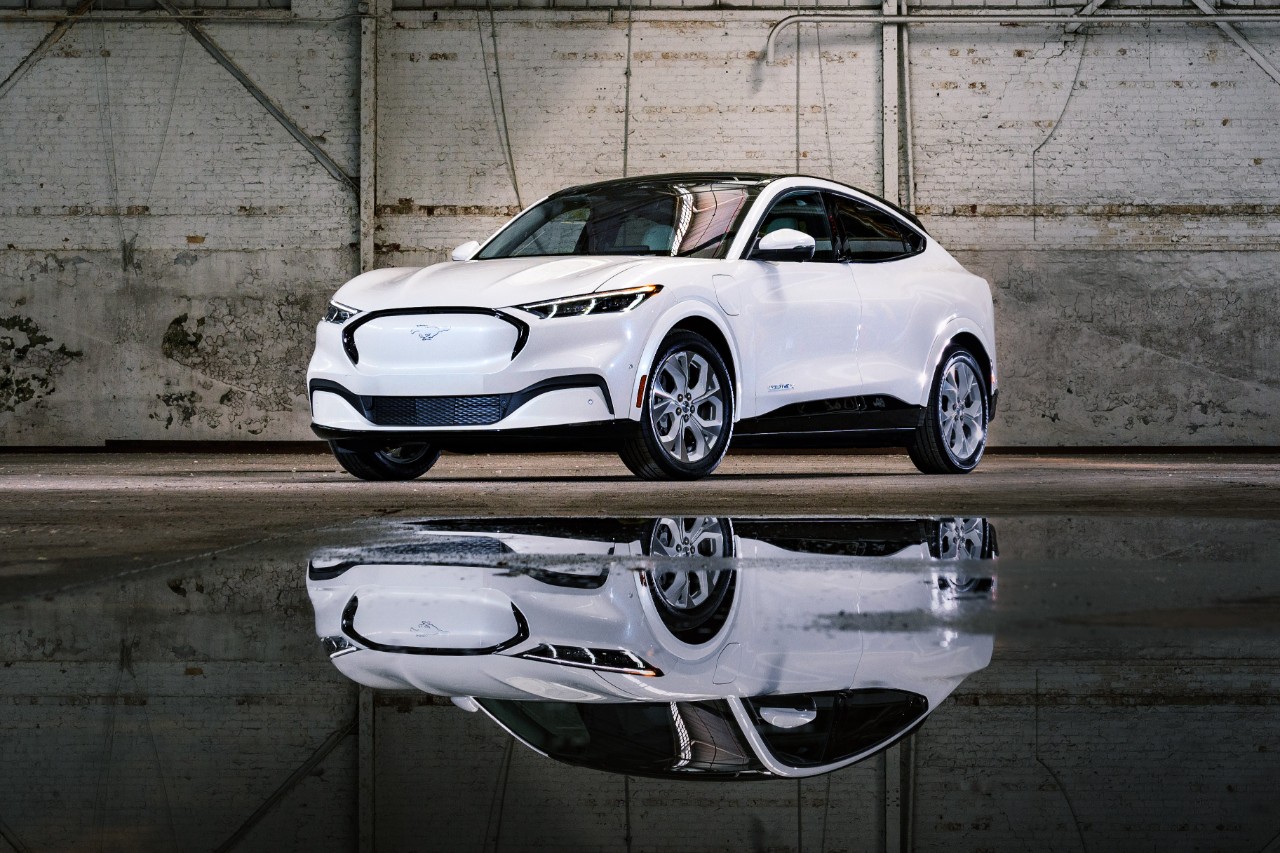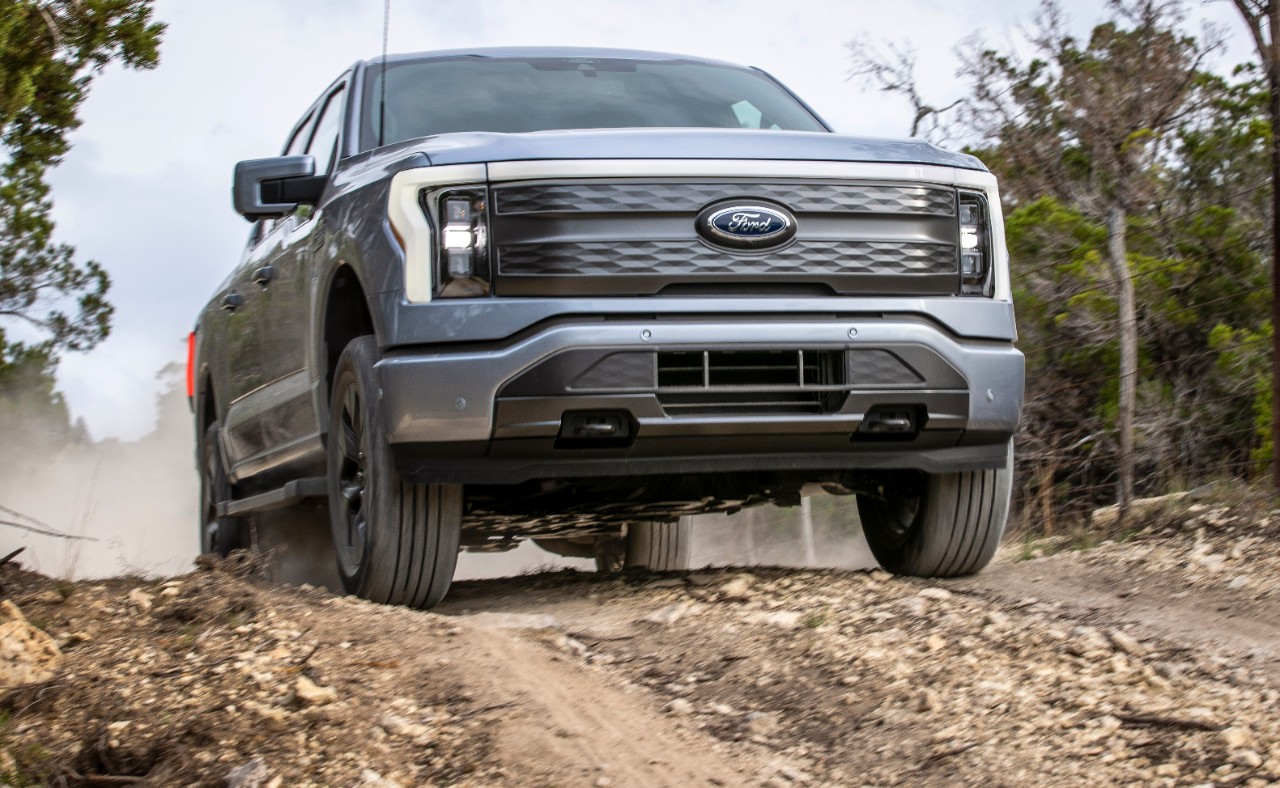Self-driving cars are coming. That has a lot of investors asking: How might we best invest in this disruptive emerging industry?
Maybe we could keep it simple, by buying a company that already makes vehicles.
"Wait," I can hear you saying, "why would we invest in an old automaker for future tech? Aren't these guys dinosaurs?"
Not all of them. Ford Motor Company (F 1.52%) is undergoing a high-tech transformation, boosting its software chops and looking to be a leader in the emerging world of technology-enabled alternatives to traditional car ownership. And it recently took a big step forward on the self-driving software front.
Is it enough to make Ford a buy? Let's take a look.

A Ford Fusion self-driving test vehicle. Image source: Ford Motor Company.
Ford's transformation builds on its famous turnaround
Ford famously came back from the dead under now-retired CEO Alan Mulally. Now, his handpicked successor, Mark Fields, is set on writing the next chapter of Ford's renaissance, as a company that is as much about tech-enabled "mobility" as it is about manufacturing cars and trucks.
Last fall, Fields announced a comprehensive plan to boost Ford's tech savvy (and its profitability) over the next few years. You can learn more about it here, but one key to that plan is self-driving tech. Ford has been touting its advancing self-driving prowess for a couple of years now. But it took a very big step forward earlier this year, when it announced a $1 billion investment in a new start-up called Argo AI.
The start-up that will be Ford's self-driving software center
Argo AI is no ordinary start-up, and it's not an ordinary deal. Cofounded by two veterans of self-driving development projects at Alphabet and Uber Technologies, Argo AI is being created to be the center of Ford's self-driving software development.

Alphabet veteran Bryan Salesky (second from right) and Uber alum Peter Rander (left) are Argo AI's co-founders. They're shown with Ford CEO Mark Fields (second from left) and Ford CTO Raj Nair (right). Nair and another Ford executive will join Argo AI's board of directors. Image source: Ford Motor Company.
The idea is that its structure as a start-up, with equity stakes and upside for employees, is likely to be a powerful tool for recruiting and retaining top talent. The retention part is important: Ford's existing self-driving software team will join Argo AI.
Ford doesn't own Argo AI outright. That's intentional: It gives employees the opportunity to own stakes in the business, with the possibility of a public offering down the road. For does gets dibs on what Argo AI creates, but if it turns out that there's a market, there's a real possibility that the self-driving software system created by Argo AI could be offered to other automakers.
It's a unique deal that appears to put Ford in an excellent position as the autonomous-vehicle industry emerges.
What else is Ford planning?
Beyond that, we don't know everything that Ford has planned. It has said that it will begin mass-producing a dedicated Level 4 self-driving vehicle for car-sharing and ride-hailing use in 2021. That vehicle will be a plug-in hybrid rather than a pure battery-electric, presumably to cut down on the time it needs to be out of service. It'll be built at Ford's factory in Flat Rock, Michigan.
Ford hasn't said much about its plans beyond that. But the company may be laying the groundwork for a suite of mobility services that includes a Ford-branded challenge to Uber and Lyft. Taken together, the world of "mobility" offers a significant bottom-line growth opportunity for Ford, one that Fields is already working to seize.
So what's the investment case for Ford?
Right now, Ford is solidly profitable, making hay on strong global demand for its well-regarded (and very profitable) lineup of trucks and SUVs. It's trading at just about 6.5 times its adjusted 2016 earnings, with a fat (and likely sustainable) dividend yield of 5.16% backed by a payout ratio of 52%.
Fields and his veteran management team have already proven themselves to be savvy stewards of the Blue Oval; investors may need to be patient, but the next chapters of Ford's story, powered by its aggressive moves into self-driving and other new technologies, could turn out to be quite profitable ones.






